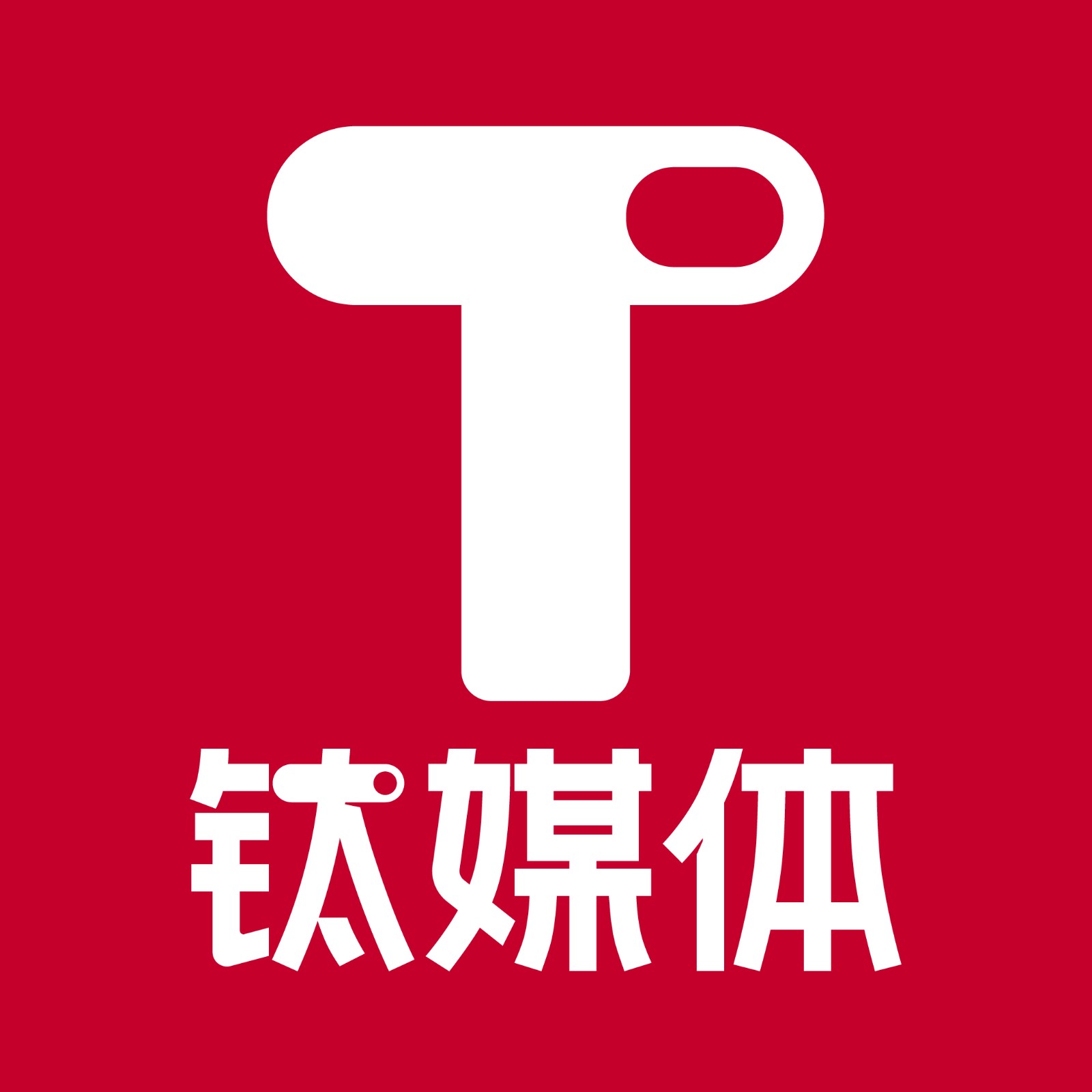A Startup in the Shadow of Alibaba
Entrepreneur Zhao Jianfeng has created a number of successful startups, including the recent one in the education industry.
By Zhao Hejuan, Yang Jin and Gao Mengyang
BEIJING, August 24 (TMTPOST) – The takeover of a delivery startup by China’s e-commerce giant Alibaba has been seen by many as a happy ending. However, its founder argued that the analogy to “being married to a rich man” was a misconception.
“It was actually the lockdown of a bride in the basement,” said Zhao Jianfeng, who launched Dianwoda in 2015, referring to Alibaba's acquisiton of the firm in 2020 in an exclusive interview with TMTPost.
Zhao revealed that the trajectory of Dianwoda was its "love and hate" relationship with Alibaba, the predominant e-commerce player in China.
“However, in the eyes of Alibaba, Dianwoda may be nobody because Alibaba has bullied so many,” added the entrepreneur.
A Pioneer in the Delivery Industry
“Dianwoba”, the precedent of Dianwoda, was among the first batch of Internet-based delivery companies in 2009. The industry grew quickly and as of 2012 there were nearly 1,000 delivery firms in China.
With the entry of giants and their massive capital inflows in 2015, the dynamics of the delivery industry was completely changed: brutal consolidation was inevitable.
In January 2015,Dianwoba reached an inflection point with the approaching of Alibaba on the horizon. A Vice President of Alibaba’s investment department paid a visit to Dianwoda. However, their conversation ended abruptly after a dozen minutes, Zhao told TMTPost. The first meeting was a prelude to a saga characterized by suspense and frustration.
In February 2015, the delivery market already had the presence of search mammoth Baidu, technology and gaming giant Tencent and Alibaba. Meituan received $700 million in its D series of financing while Elema raised $630 million in its E-round financing. Baidu Waimai received $350 million and Alibaba invested RMB6 billion in Alibaba’s subsidiary Koubei.
With deep-pocket giants present in the industry, small and mid-sized financial investors were deterred from entering the sector. “No financial investors dared to invest in the sector and Dianwoba was doomed,” Zhao recalled.
On May 29, Zhao decided to overhaul the company’s business by offering all merchants access to its logistics capacity. In 26 days, the new Internet-based logistics platform Dianwoda went online. Soon the company started raising money.
“Alibaba was the most desirable investor based on its business strategies, capital strength and history,” recalled Zhao. He reached out to Alibaba, which responded with a positive signal.
In July, Albaba’s subsidiary Ant Group’s investment department contacted Dianwoda regarding investments. By then, Zhao learned that any investment into his firm had been ruled out by Alibaba’s investment department. The subsidiary picked up where Alibaba Group stopped mainly because Alibaba’s business department liked Dianwoda due to potential synergies between the two. Ant Group has a food delivery platform named Koubei. In September, Ant Group became a shareholder of Dianwoda.
Backed by strong capital, Dianwoda accelerated its expansion. The delivery industry is about “daily orders” to some extent. By October, daily orders reached 350,000 in 21 cities. “We became No.2 in the industry by daily orders in 120 days,” recalled Zhao.
According to Zhao’s plan, daily orders were expected to surge to 1 million by February 2016, the highest in the industry. But the business expansion would lead to a capital crunch.
In early November 2015, Dianwoda held its first Board of Directors meeting, in which Zhao asked Ant Group to increase their investments. However, the board rejected Zhao’s request and instead asked the company to slow its business growth pace.
In early 2016, due to its exponential growth, the company received term sheets from a number of institutional investors.
“At this crucial moment, Ant Group’s investment department offered to add US$100 million to lead that round of financing, which amounted to US$180 million,” said Zhao.
Ant Group’s investment department remitted US$10 million as a bridge fund to Zhao’s personal bank account, which turned out to be a problem in the future. Ant Group explained that it would take a much longer time to transfer money to a corporate account, which may delay the progress of the business.
Before February 8, 2016, all investors completed their internal approval process for their investment into Dianwoda, except Ant Group, which failed to receive a green light from Alibaba’s Investment Commission.
A small move made by a giant could change the landscape of a sector. Zhao and his Dianwoda got stuck for a second time.
On February 29, 2016, Zhao decided to withdraw from 17 cities of the 21 cities his company had presence in. 1,300 persons were laid off in a single day without receiving any compensation. If the company had compensated its employees, it would be insolvent right away.
“1,300 employees left quietly, without accusing, protesting or demanding a compensation, which left me moved and ashamed,” Zhao told TMTPost.
(Three years later, on March 1, 2019, Zhao contacted them and paid each of them a month’s salary to show his belated gratitude.)
On the brink of bankruptcy, Zhao had no time to lick his wounds. On March 1, he turned to Meituan for help. Meituan said they could buy shares at a 40% discount but Alibaba must exit as a shareholder. Zhao returned to Hangzhou, asking Ant Group to divest all its shares.
In a few days, Alibaba’s Investment Department contacted Zhao, saying they would continue to support Dianwoda. But due to changes in the competitive landscape, Alibaba would buy shares at a 40% discount of the original valuation, the same as Meituan had offered.
He returned to the original investor after a brief flirt with Meituan. In fact, he had no choice because Ant Group had the veto right in the Board.
A Long Wait
On April 4, 2016, Zhao received a phone call from Alibaba. “All terms have been approved. It is just a matter of an internal process. It should be done in about a week,” he was told.
However, by May 15, there was still no reply. Zhao was disappointed. “It is time to close the company,” he murmured.
Zhao remembered clearly that it was a Sunday. He had quitted smoking for some time but he bought a pack of cigarettes. He lighted a cigarette and went through the accounts.
Suddenly, he realized the $10 million bridge loan from Ant Group was sent to his personal account first and next transferred by him to the company's. It was his personal debt now.
He was wondering whether he should divorce his wife in order to prevent the entire family from going broke. He deeply regretted his acceptance of the money to his personal account.
In a reversal of fate, he received a phone call from Alibaba and was told that “they would carry out the investment”.
“Does the phone call mean the dust settles?” asked Zhao. He shook his head in retrospect.
The investment was injected to his startup by September 2016, about four months after the call.
“No matter what, we survived,” said Zhao. In 2017, the company thrived. Business grew by 9.7 times year-over-year in terms of revenues.
“We would rather die on the path of expansion than stay alive in a retreat,” Zhao said. He realized that he could attract investments as long the business was expanding.
Dianwoda had cash crunches constantly during its fast expansion. By June 2017, the company had over 100,000 delivery men. Often the cash flows were enough only for 24 hours, Zhao told TMTPost.
In order to support business expansion, Zhao raised money again after consulting Alibaba. On June 6, 2017, it received a Term Sheet from express delivery firm Yuantong. In October, institutional investors, including Goldman Sachs and China's insurance giant Ping An, offered term sheets. By December, Dianwoda reached a share purchase agreement with the investors.
But Alibaba as the shareholder with the veto right was unclear about its intention for about 6 months. “No formal feedback was ever given,” said Zhao.
“It is still in the process of internal discussions,” Alibaba told Zhao repeatedly during the half year.
In January 2018, Alibaba informed that Cainiao, Alibaba’s delivery services subsidiary, would be the controlling shareholder of Dianwoda. In February 2018, Alibaba clearly asked Zhao to say no to all other investors.
In April 2018, Alibaba and Ant Group jointly acquired Elema, an Internet-based food delivery platform, for $9.5 billion, marking the largest acquisition in the industry. Competition between giants intensified.
On a daily basis, the company had to pay over 100,000 deliverymen tens of millions yuan for their work. “Once there is a cash crunch, deliverymen would be jobless. It may cause a big problem to the stability of the society,” recalled Zhao. Alibaba allowed Yuantong, an express delivery company, to invest in Dianwoda.
After over 6 months of negotiations, Cainiao announced it would invest $290 million in Dianwoda, most of which was used to buy shares that had been held by non-Alibaba shareholders. The transaction was completed by October 2018, by then Cainiao became the controlling shareholder of Dianwoda, with the exit of all venture capitalists.
Many friends congratulated Zhao on his integration into the giant’s ecosystem. But he understood that the gap between Dianwoda and Alibaba could never be narrowed after 16 months of frustrating negotiations. “All my passions for business have been exhausted (during a long wait). It was the nadir of my life. I should have relaxed and felt happy,” said Zhao.
In October 2019, Zhao submitted his letter of resignation to Alibaba, the controlling shareholder of the company he founded. In March 2020, he transferred all his shares to Alibaba, which were worth $100 million in 2018.
In May 2020, Zhao left Dianwoda. The once largest instant logistics company in China was 100% owned by Cainiao, Alibaba's express delivery subsidiary.
更多精彩内容,关注钛媒体微信号(ID:taimeiti),或者下载钛媒体App

钛媒体 App
13965篇文章TA的动态
2022-09-14 钛媒体 App发布了 《星巴克加码中国市场,未来三年要新增开3000家门店|钛快讯》的文章
2022-08-11 钛媒体 App发布了 《白云山麾下公司虚抬药价“把戏”,被拆穿了》的文章
2022-07-06 钛媒体 App发布了 《为了帮00后卷王找到工作,简历修改师们拼了》的文章
2022-07-06 钛媒体 App发布了 《威尼斯向游客收“进城费”,国内城市如何借鉴?》的文章
2022-03-25 钛媒体 App发布了 《蔚来2021年财报发布:年营收361亿元,整车毛利率达到20.1%》的文章


























